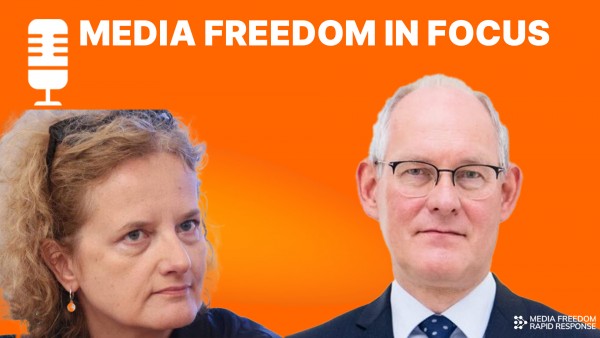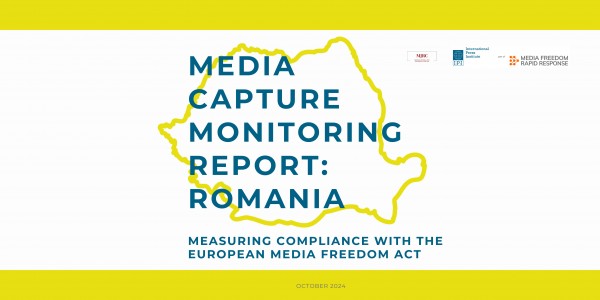The International Press Institute (IPI) today joined an international chorus of voices urging Ukraine to reject moves to re-criminalise defamation.
Reuters reported that deputies from President Viktor Yanukovych’s Party of Regions and their allies in parliament on Tuesday gave preliminary approval to a draft law that would provide for up to five years imprisonment for those convicted of libel.
IPI Press Freedom Manager Barbara Trionfi said: “Ukraine’s parliament made the right decision 11 years ago when it revoked criminal liability for defamation, libel and insult. To undo that progress now would have a grievous impact on the practice of journalism and on the Ukrainian people’s ability to obtain the information they need to make decisions that will affect their lives for years to come, particularly as the country approaches parliamentary elections scheduled for Oct. 28. IPI and our affiliate, the South East Europe Media Organisation (SEEMO), urge Ukraine’s parliament to reject this draft law and we call on President Yanukovych to pledge not to approve it if it is passed.”
A statement posted on Yanukovych’s website yesterday said that he noted that “any obstacles to the work of journalists and any pressure on media are inadmissible, particularly during elections”, and that “heads of regional state administrations must duly react at any obstacles to the work of media”. The statement further quoted Yanukovych as saying: “You must rapidly prevent pressure on media in case of any claims.”
The Organization for Security and Co-operation in Europe (OSCE)’s representative on Freedom of the Media, Dunja Mijatovic, also criticised the draft bill yesterday.
“I call on all members of parliament to reject the proposed amendment, which would represent a serious setback for media freedom in the country,” she said. “Criminalizing speech in a modern democracy means stifling debate and protecting public officials from criticism, and can only lead to self-censorship on the part of the media.”
Authorities in Ukraine recently have been the target of severe criticism over what IPI and other observers say are moves to silence independent media.
Investigative journalist Serhiy Leshchenko from online newspaper Ukrayinska Pravda, who has previously reported being summoned by security services to explain “uncareful expressions” criticising Yanukovych, told CBS News that he worried he would be one of the first targeted under the new law if it passes.
Two weeks ago, the country’s leading cable television provider, Volia, transferred the signal of independent broadcaster TVi, one of the few media outlets in the country willing to air criticism of Yanukovych and his administration, to a more-expensive package. TVi said that Volia was one of 85 cable television providers of various sizes throughout Ukraine that have dropped its signal in recent months, moves TVi said were linked to government pressure.
In July, tax police raided the station and prosecutors opened a criminal case accusing TVi and its head, Mykola Kniazhytsky, who is currently seeking a seat in parliament on the United Opposition ticket, of tax evasion. Prosecutors later dropped the case against Kniazhytsky, but an appeals court last week revived the case against the station and RFE/RL reported that authorities claim that some €289,000 in back taxes remain due.
Earlier this month, Yanukovych praised Ukraine’s media freedom environment in an address to the World Association of Newspapers and News Publishers’ annual World Congress which took place this year in Kiev. He told attendees that “Ukraine has made its way, without exaggeration, from total censorship to an open society”, Reuters reported. However, Yanukovych was met by a dozen local journalists who stood and raised banners reading “Stop Censorship” during the speech. Reuters said the president’s security guards ripped the banners from the protestors’ hands.


